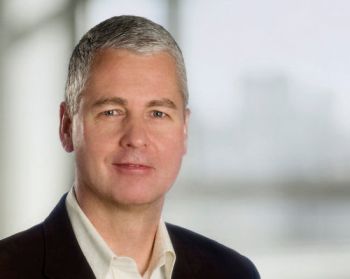Busani Bafana interviews FRANK RIJSBERMAN, CEO of the Consultative Group on International Agricultural Research
RIO DE JANEIRO, Jun 20 (TerraViva) The Consultative Group on International Agricultural Research (CGIAR) is putting science to work in boosting food production through a global research portfolio worth five billion dollars launched at the Agriculture and Rural Development Day (ARDD) earlier this week.
Food security and sustainable agriculture have been identified as priority issues here at the Jun. 20-22 Rio+20 Summit.
New chief executive officer of the CGIAR Consortium, Frank Rijsberman, says science and the environment should be best friends to achieve a food secure future. He told TerraViva that CGIAR’s research programme targets collaboration with a diverse range of partners to ensure that research translates into results on the ground.
The research portfolio, covering a five-year period, focuses on increasing the productivity of small-scale farmers, who provide up to 80 percent of the food supply in developing countries.
An essential part of sustainable agriculture, smallholder farmers are CGIAR’s top priority because when they have access to new agricultural technologies and crop varieties resulting from research, they are able to get more out of their land, labour and livestock.
The ambitious CGIAR research agenda, Rijsberman says, aims to reduce rural poverty, and improve the food security, health and nutrition of hundreds of millions of the world’s poorest people. In addition, the consortium has committed itself to ensuring sustainable management of natural resources.
Fifteen new programmes build on CGIAR’s accomplishments over the past 40 years, including research on natural resource management that has helped to conserve water, renew soil fertility, and reduce erosion and greenhouse gas emissions while simultaneously increasing farmers’ yields.
Rijsberman said millions more hectares of land would be under cultivation today at the expense of primary forests and fragile environments had it not been for CGIAR’s crop improvement research.
Emphasising that investing in agricultural research was a critical first step to kick-start the innovation engine for a sustainable, food secure future, Rijsberman explained to TerraViva reporter Busani Bafana the ambitious research programme which will bring together investors and the implementers.
Q: Who are the targets of the research portfolios?
A: The portfolio of 15 CGIAR research programmes organises the publicly-funded research of the CGIAR Consortium and its partners in order to meet the challenges related to food insecurity, rural poverty, malnutrition and environmental degradation.
It targets both donors and investors in public agricultural research, by presenting to them an attractive investment portfolio, and the implementers of agricultural research, by organising and coordinating their efforts.
The research targets Africa, Asia and Latin America – with at least half of the projects in Africa.
Q: What specific research gaps does CGIAR seek to fill through the allocation of these funds?
A: Private sector research primarily focuses on the needs of commercial farmers, not the smallholders in developing countries that have different crops, different diseases and different problems accessing markets. CGIAR focuses on the needs of the 500 million smallholder farmers, mostly women, with less than two hectares of land, who provide most of the food in developing countries.
Q: Will CGIAR centres compete to access the funds?
A: The research programmes in this portfolio have been approved by our collective investors (through the CGIAR Fund Council). Funding will be allocated based on performance agreements between the CGIAR consortium and the centres leading the programmes.
Q: Can you briefly comment on the link between sustainable development and agriculture?
A: In response to the food price spikes in 2008, 2010 and 2011 (that pushed some 44 million people into poverty), farmers are trying to produce more food and they are ploughing under new and marginal lands more rapidly than even during the Green Revolution.
Unless agricultural research manages to help raise crop yields sustainably – getting more crop per ha of land – millions more hectares will be ploughed under. That is why agriculture and environment are new best friends, working together for a food secure future while safeguarding the planet.








 Add to Google
Add to Google







